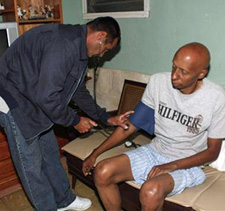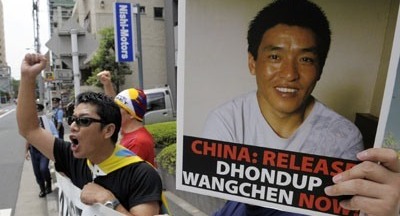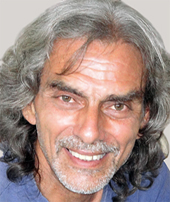
CPJ holds Cuba responsible for welfare of jailed journalists
New York, March 4, 2010—A week after the death of jailed Cuban dissident Orlando Zapata Tamayo, a journalist on a hunger strike is seriously ill while health conditions of imprisoned reporters remain dire. As the seventh anniversary of the massive crackdown on dissidents approaches on March 18, the Committee to Protect Journalists renews its call for the Cuban…
Attacks on the Press 2009: Cuba
Top Developments • Vibrant blogging culture emerges despite severe Internet restrictions.• Jailed journalists suffer amid inhumane conditions. Key Statistic 22: Reporters and editors in jail as of December 1. Cuba was hit hard by the global economic crisis and endured an upheaval in its highest offices, but state-controlled news media delivered superficial and skewed coverage.…

CPJ’s 2009 prison census: Freelance journalists under fire
New York, December 8, 2009—Freelancers now make up nearly 45 percent of all journalists jailed worldwide, a dramatic recent increase that reflects the evolution of the global news business, the Committee to Protect Journalists said today. In its annual census of imprisoned journalists, CPJ found a total of 136 reporters, editors, and photojournalists behind bars…
Video Report: Behind Bars But Not Alone
In this video companion to CPJ’s annual census of imprisoned journalists, Deputy Director Robert Mahoney describes how international advocacy can make a difference in winning the freedom of jailed reporters, editors, photojournalists, and bloggers. (3:45) Read the special report “Freelancers Under Fire” and view our database of journalists in prison.

Obama responses stun Cuban blogger Yoani Sánchez
Cuban blogger Yoani Sánchez was astounded this week by President Barack Obama’s decision to respond a written questionnaire Sánchez submitted to the White House. Still recovering from bruises left by a recent vicious attack by state security agents, she told CPJ from her home in Havana: “This is the best way to get better.”
CPJ condemns assault, harassment of Cuban bloggers
We issued the following statement in response to reports that Cuban bloggers Yoani Sánchez, Claudia Cadelo, and Omar Luís Pardo Lazo were detained, assaulted and harassed by state security agents on their way to a peaceful march in Havana. Details of the incident were published on the Web site of Global Voices.
Toronto’s Citizen Lab uses forensics to fight online censors
A basement in the gray, Gothic heart of the University of Toronto is home to the CSI of cyberspace. “We are doing free expression forensics,” says Ronald Deibert, director of the Citizen Lab, based at the Munk Centre for International Studies. Deibert and his team of academics and students investigate in real time governments and…

From a park bench in Havana, Cuban blogger honored in NY
Last night’s scenario was breathtaking: a circular hall with high ceilings, marble columns, tables draped with heavy tablecloths and soft bouquets, and journalism personalities elegant in cocktail dresses and tuxedos. And poised behind a wood podium, a black screen silently reminding all those present of who was not there.

To blog in Cuba: defying hazards, enjoying freedom
I share with my fellow Cuban independent journalists the drunkenness of writing freely under a totalitarian dictatorship; of experiencing the catharsis of denouncing the regime’s violations; of feeling useful to my people knowing that, in the long run, what I write will contribute to a better future.
The alternative Cuban blogosphere
At the end of the 1990s, Cuban dissidents sought out different media to disseminate the reality of the island. Reports on violations by a government that proclaims itself a human rights’ defender begin to circulate around the world, damaging the image that the socialist state wants to project to the rest of the world. This…